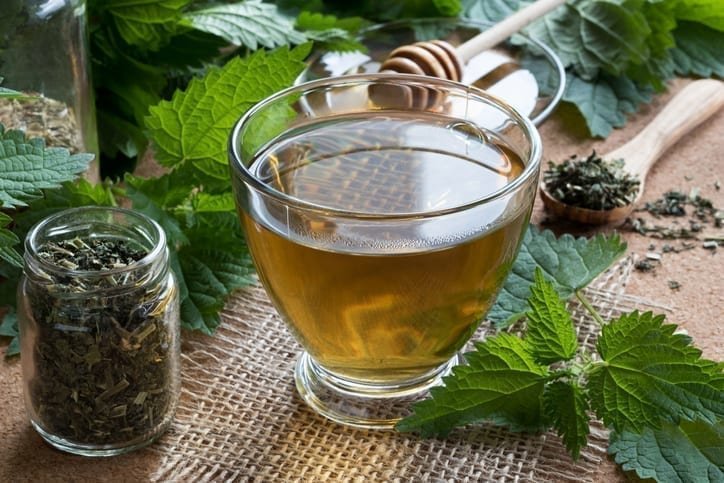While researching for my new book, Seven Plants to Save the World, several incredible facts surfaced about nettles; one of them is just far too important to be known only to those who get to read the book, so I’m going to share it with you now.
For millennia nettles were a part of the daily diet across Europe from March until November. Since WWII we have not eaten them, and since WWII incidences of the diseases of civilisation – cancers, heart disease, iatrogenics, diabetes, depression, dementia, neurological dysfunctions and more – have gone through the roof. I’m not implying all of these diseases have nettle deficiency as their aetiology, that would be ridiculous, but it is certainly a risk factor.
Nettles and neurology
Looking at dementia and neurological dysfunctions, nettles provide an unnoticed answer. Nettles are the sole provider of a particular enzyme (choline acetyltransferase) that allows a neurotransmitter called acetylcholine to do its job properly. Another enzyme, acetylcholinesterase, assists acetylcholine; it’s found in lots of foods and science assumes it’s the only one that enables acetylcholine to do its job – but it’s not.
So what’s the deal with this acetylcholine? Well, it’s a massive deal. To perform any movement, or to even perform any thought process, acetylcholine has to fill the associated nerve ending/s. This nerve is then stimulated with a message to either perform a motor function (move) or to perform a cognitive function (think).
If acetylcholine is impeded in its function, the impact is potentially huge – yet this acetylcholine can only do its job with an adequate supply of the enzyme to activate it.
Problems in the food chain
We all know the food chain is in a terrible state, with most people eating predominately processed food treated with heat, smothered in deleterious oils and exposed to various chemicals, at the end of which there is definitely little life left in it. This means that the bits in the food we really need (in this case the acetylcholinesterase) has been severely compromised.
So what effect does this have on our neurological functionality? It’s unlikely to be good.
Then consider the increasing abundance of sufferers of neurological conditions – Parkinson’s and Alzheimer’s and other aspects of dementia – plus all the new neuralgia and fibromyalgia cases. They all show clear errors in neurological pathways, in line with a deficit in these enzymes, compromising basic thought and motor functionality.
The food chain has destroyed one enzyme critical for motor and mental functionality, whilst the other, only found in nettles, isn’t being eaten at all.
Please give that sentence a few seconds to sink in.
 Play Video about This Rock Might Just Save The World
Play Video about This Rock Might Just Save The World Play Video about Play 2 hours of rock
Play Video about Play 2 hours of rock Play Video about Play 2 hours of brook
Play Video about Play 2 hours of brook Play Video about Play 2 hours of sheep
Play Video about Play 2 hours of sheep











































